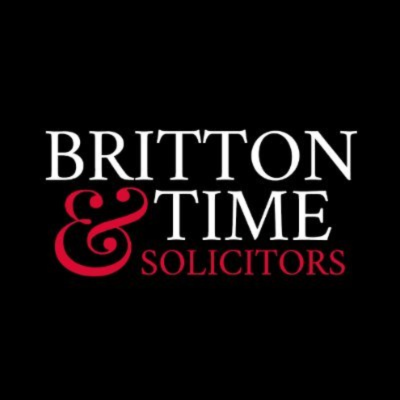Book A Consultation
Whistleblowing vs Grievance
Navigating workplace challenges can be tricky, especially when you encounter serious issues or unfair treatment. This comprehensive guide explores two crucial ways employees can address workplace problems: whistleblowing and raising grievances. We’ll break down the differences, explain legal protections, and provide clear guidance on when and how to speak up. Understanding your rights is essential for maintaining a safe and fair work environment.
If you’re struggling with workplace concerns and need expert advice, submit a lead form, and we’ll match you with SRA-regulated solicitors who can help you understand whistleblowing and its importance in protecting public interests.
What is Whistleblowing
Whistleblowing is a crucial way for brave individuals to speak up about wrongdoing in their workplace. Imagine discovering something seriously wrong that could harm people or break the law – that's where whistleblowing comes in. You might uncover dangerous safety practices in a factory, notice financial fraud in a company, or identify serious misconduct by workplace leaders.
Key issues you might report include:
- Illegal activities threatening public safety
- Dangerous working conditions
- Potential criminal behaviour
- Financial corruption
- Unethical professional practices
The law protects you if you report these concerns honestly and in good faith. Whether you tell your manager, a regulator, or another official body, you're doing something incredibly important. Whistleblowers play a vital role in keeping organisations accountable and protecting people from harm.
If you're worried about speaking up, don't face this alone. Contact us and we'll match you with experienced, SRA-regulated solicitors who understand whistleblowing and can guide you through the process safely.
What is a Grievance
When workplace issues become personal and directly impact your working environment, you might need to raise a grievance. Unlike whistleblowing, which addresses broader public concerns, a grievance focuses on specific problems affecting you individually. For instance, you might experience unfair treatment, discrimination, or unsatisfactory working conditions that breach your employment rights.
These personal complaints typically involve:
- Disputes about pay or working hours
- Workplace bullying or harassment
- Unfair performance evaluations
- Inappropriate management behaviour
- Breach of your employment contract
A classic example might be a young apprentice experiencing consistent discrimination from a supervisor, or an employee being consistently overlooked for promotion despite meeting performance targets. These situations require formal internal resolution through your company's HR procedures.
While personal grievances are handled within your organisation, they're crucial for maintaining fair and respectful workplace standards. If you're struggling with workplace issues, don't suffer in silence. Submit a lead form, and we'll connect you with award-winning, SRA-regulated solicitors who can provide expert guidance on resolving your workplace challenges.
Whistleblowing vs Grievance: When Does Each Apply
Understanding when to blow the whistle or raise a grievance can protect your rights and workplace integrity. Whistleblowing involves reporting serious misconduct that threatens public interest, such as discovering dangerous manufacturing practices or financial fraud that could harm many people. These situations go beyond personal workplace disputes, often requiring reporting to external authorities like regulators or law enforcement.
In contrast, internal grievance procedures address individual workplace challenges. You might use this route for:
- Personal discrimination experiences
- Unfair treatment by management
- Contract breaches affecting your employment
- Disputes about pay or working conditions
While whistleblowing protects broader societal interests, grievance procedures focus on resolving your specific employment concerns. For example, an apprentice experiencing consistent workplace bullying would follow internal grievance channels, whereas uncovering systematic safety violations would constitute whistleblowing.
If you're uncertain about the best approach, contact us and we'll match you with award-winning, SRA-regulated solicitors who can provide expert guidance tailored to your workplace situation.
Processes for Whistleblowing and Grievances in the Workplace
Understanding workplace reporting mechanisms is crucial for protecting your rights. Whistleblowing involves reporting serious misconduct that threatens public interest, typically through internal channels first, such as speaking with senior management or HR. If unresolved, you can escalate to external authorities like the Health and Safety Executive or Financial Conduct Authority.
- These reports might involve uncovering dangerous manufacturing practices or systematic financial fraud.
Workplace grievances follow a different path, focusing on personal employment issues.
- You'll usually start by discussing concerns directly with your line manager or submitting a written complaint to HR. These might include discrimination, unfair treatment, or contract disputes.
If internal processes fail, you can seek external resolution through ACAS early conciliation or an employment tribunal.
The key difference lies in scope: whistleblowing protects broader societal interests, while grievances address individual workplace challenges. No matter your situation, you're not alone. Contact us, and we'll match you with award-winning, SRA-regulated solicitors who can provide expert guidance tailored to your specific workplace concern.
Legal Protections for Whistleblowers and Those Raising Grievances
UK workplace law provides comprehensive protections for employees who speak out about misconduct. If you witness serious wrongdoing or face unfair treatment, you’re legally safeguarded when raising concerns. For whistleblowers, this means protection from unfair dismissal if you report criminal activities, health risks, or legal violations. Those filing grievances have statutory rights to challenge workplace issues without fear of retaliation.
Consider an example like a hospital worker discovering unsafe patient care practices or an office employee experiencing systematic discrimination. In these scenarios, you can:
- Report concerns through internal channels
- Seek protection from victimisation
- Claim compensation if improperly treated
- Access confidential reporting mechanisms
Time limits and documentation are crucial when pursuing legal remedies. Evidence strengthens your case significantly, so keep detailed records of any incidents or communications. Professional legal guidance can help navigate these complex processes effectively.
Ready to understand your workplace rights? Explore government resources on whistleblowing protections, or contact us, and we’ll match you with SRA-regulated solicitors experienced in employment law to provide expert support.
Explore More on Whistleblowing:
Related Articles

What is Whistleblowing? All You Need to Know
What Is Whistleblowing? Whistleblowing Policy Why Whistleblowing Policy Is Important For Employers Who Does Whistleblowing Apply To Whistleblowing And Protected Disclosure Whistleblowing And Confidentiality Book A ConsultationWhat is Whistleblowing? Whistleblowing is...
Join Our Newsletter
Pregnant Again During Maternity Leave – What Now?
Pregnant During Maternity Leave What Does Being Pregnant During Maternity Leave Mean? Are You Entitled To Another Maternity Leave? Maternity Pay: Can You Claim It Again Timing Your New Maternity Leave Book A ConsultationPregnant During Maternity Leave Pregnancy during...
Understanding NHS Voluntary Redundancy
Nhs Voluntary Redundancy Eligibility Criteria For Nhs Voluntary Redundancy How Nhs Voluntary Redundancy Payments Are Calculated What Happens To Your Nhs Pension After Redundancy Differences Between Voluntary And Compulsory Redundancy Other Options Besides Nhs...
Redundancy Agreements: How to Secure Fair Treatment
What Is A Redundancy Agreement? When Are Redundancy Agreements Used? Legal Basis For Redundancy Agreements In The Uk Key Elements Of A Redundancy Agreement Difference Between A Redundancy Agreement And A Settlement Agreement Voluntary Vs Compulsory Redundancy...
Understanding UK Shared Parental Leave & Pay
Understanding Shared Parental Leave And Pay Eligibility Criteria For Shared Parental Leave And Pay How Shared Parental Leave And Pay Works Steps To Apply For Shared Parental Leave And Pay How To Claim Shared Parental Pay Tips For Managing Shared Parental Leave With...









